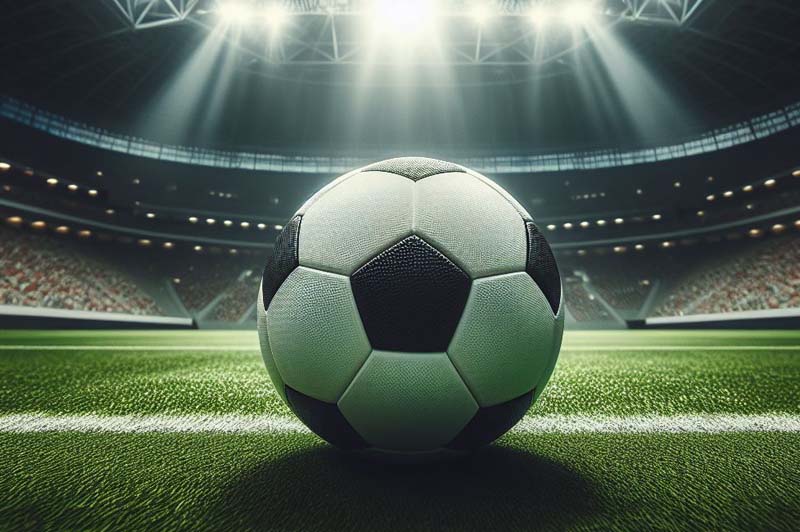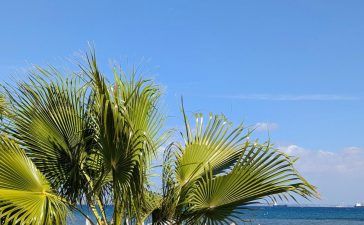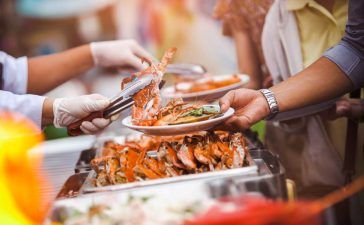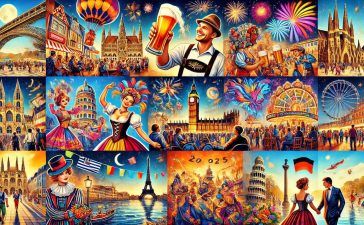Olé, Olé, Olé! Tune your voice because this summer will be all about “goals.” Euro 2024 is coming to Germany, with a hot summer in 10 German cities and 10 world-class stadiums. As year-round travelers, we will spend the next few minutes reading this post and a few weeks in June and July watching quality football and exploring great destinations. This will be a short (or not so) guide to Euro 2024 cities with all the exciting things to do and see in these destinations.
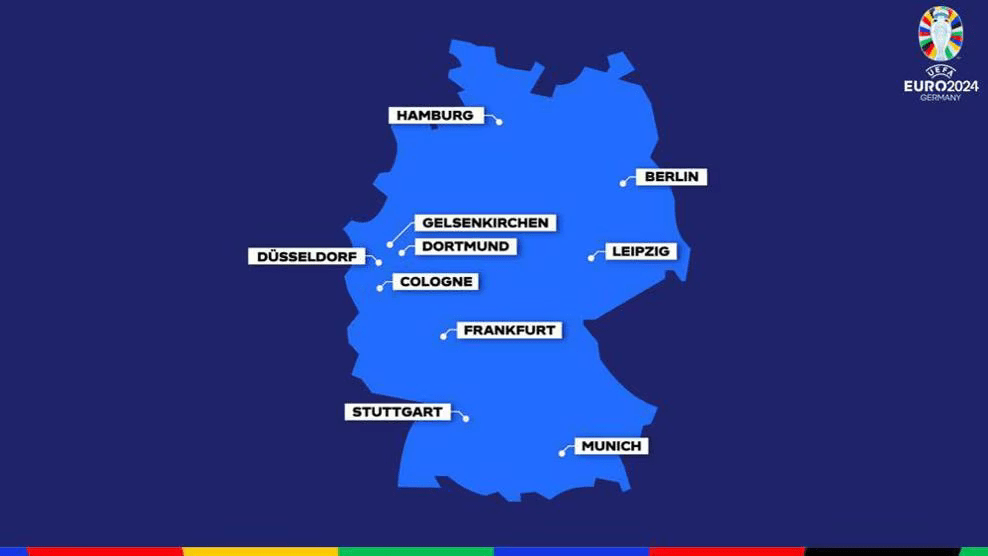
Host cities of Euro 2024 championship
- Berlin, Germany: Capital city, population 3.7 million, rich history and culture, central location. Check flights >
- Munich, Germany: Bavaria region, population 1.5 million, famous for breweries and festivals, southern Germany (distance from Berlin: approx. 500 km).
- Dortmund, Germany: North Rhine-Westphalia region, population 600,000, known for its industrial heritage and passionate football fans, western Germany (distance from Berlin: approx. 430 km).
- Gelsenkirchen, Germany: North Rhine-Westphalia region, population 260,000, another passionate football city in western Germany (distance from Berlin: approx. 450 km).
- Stuttgart, Germany: Baden-Württemberg region, population 630,000, known for its car industry and beautiful scenery, southwestern Germany (distance from Berlin: approx. 600 km).
- Hamburg, Germany: Second largest city in Germany, population 1.8 million, major port city in northern Germany (distance from Berlin: approx. 280 km).
- Düsseldorf, Germany: North Rhine-Westphalia region, population 620,000, known for its fashion industry and art scene, western Germany (distance from Berlin: approx. 480 km).
- Cologne, Germany: North Rhine-Westphalia region, population 1 million, famous for its cathedral and Karneval celebrations, western Germany (distance from Berlin: approx. 500 km).
- Frankfurt, Germany: Hesse region, population 750,000, financial hub and major airport, central western Germany (distance from Berlin: approx. 550 km).
- Leipzig, Germany: Saxony region, population 600,000, known for its rich musical heritage, eastern Germany (distance from Berlin: approx. 150 km).
And here we are going to take a closer look at the detailed information about each host city of EURO 2024.
Berlin (Matches: 6, Stadium: Olympiastadion Berlin)
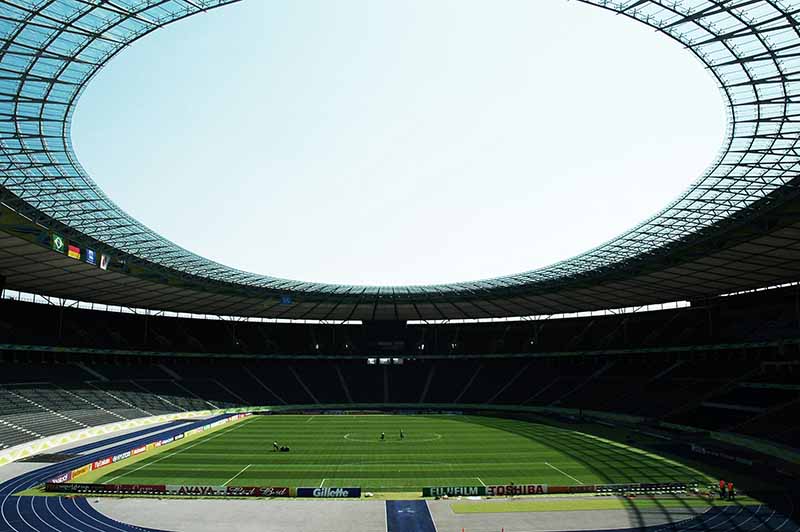
City snapshot
The bustling capital, with a population of 3.7 million, welcomes you with a rich history, art, and vibrant nightlife. From the middle of June to July, you will have enough time to explore the city, from historic sites to modern museums and pubs.
Start with classics: Your first destination is Brandenburg Gate, an iconic 18th-century gate and a symbol of German reunification. Your next location is the Reichstag Building, the seat of the German Parliament, with its stunning architecture and fascinating history. Walk along the remnants of the Berlin Wall and explore the open-air museum with a nearby documentation center.
Beyond the tourist trail: Spend some time exploring the streets without tourist lines, riding a bike in Tiergarten, or taking an elevator ride to the top of Fernsehturm (TV Tower).
Accommodation: Expect fully booked hotels for Euro 2024. To be on the safe side, book your place right now. The prices are quite versatile: around $140 for a 3-star hotel, $220 for a 4-star hotel, and $400 for a day in a 5-star hotel.
Transportation: Berlin has an excellent public transport system with U-Bahn (subway), S-Bahn (commuter trains), trams, and buses. The city is divided into three faze zones: A, served by S-Bahn, Zone B in the city, and Zone C, serving the surrounding area. A single ticket price that includes all zones is €4,00.
Shopping: For shopping, head to Kurfürstendamm, Berlin’s most popular shopping street with exclusive and expensive brands. Here you will also find Europe’s biggest department store, KaDeWe. If this is too much for you, find one of Berlin’s flea markets open on weekends. The best deals are in the Flea and Antique Market on Straße des 17 Juni.
Fun beyond football: Atart your “Berlin experience” with a historical place like Prater Garten, serving beer since 1837. The next location is the iconic Berghain nightclub, which hosts world-known techno and electronic events. For more laid-back vibes, visit an upscale Bar Tausend with creative craft cocktails.
Olympiastadion Berlin
Finally, you will watch football at the Olympiastadion, the biggest venue for EURO 2024, which will host the final game on July 14.
Capacity: 71,000
Munich (Matches: 6, Stadium: Fußball Arena München)
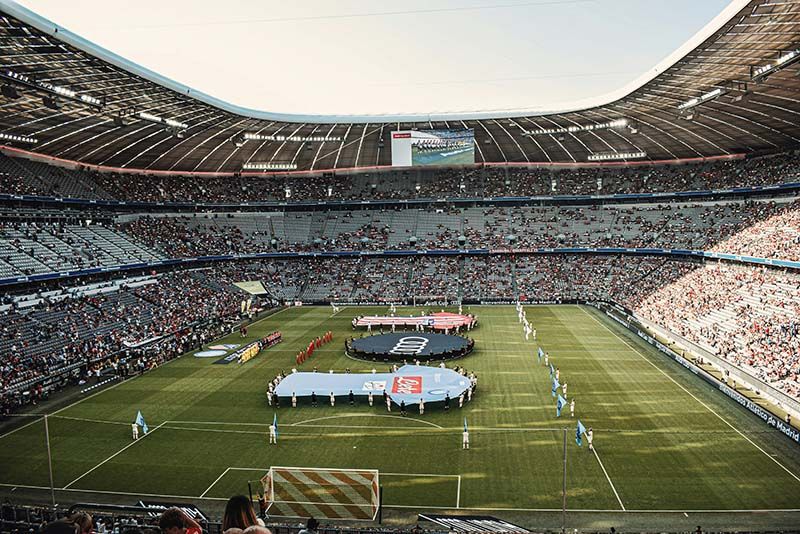
City snapshot
Bavaria’s capital, Munich, with a population of 1.5 million, is a cultural hub with beer gardens, stunning architecture, and the legendary Oktoberfest celebrations. Aside from hosting 6 matches of EURO 2024, Munich has so much more to offer.
Start with classics: Discover the Bavarian architectural masterpiece of Nymphenburg Palace with its royal apartments and gardens. Next, explore the iconic Frauenkirche cathedral, whose distinctive green dome is a symbol of Munich.
Beyond the tourist trail: Relax in one of the largest urban parks (larger than Central Park in NY), Englischer Garten, with beautiful landscapes, meadows, lakes, and streams. Next, stroll between the stalls with fresh fruits, vegetables, fish, beer, and snacks in Viktualienmarkt.
Accommodation: The excitement of EURO 2024 might also mean higher hotel rates. Search and book ahead at hotels to grab the best deals. Budget options in Munich start around €180, while luxury stays can go above €380 per night.
Transportation: Munich offers a well-connected public transport system with U-Bahn, S-Bahn, trams, and buses. The core route, Stammstrecke, runs from Munich Airport through the city center, offering great flexibility. Bike sharing is another popular option in Munich that is cheaper and “greener”.
Shopping: As a major shopping center in Germany, Munich has multiple neighborhoods to empty your bank account. You can choose Glockenbachviertel, a trendy neighborhood with hip bars, art galleries, boutiques, and restaurants, Maximilianstraße, a luxurious avenue lined with designer boutiques, or Hofbräuhauskeller for a more traditional and relaxed atmosphere.
Fun Beyond Football: For techno lovers, there is one place, Blitz Club, that hosts international DJs. For a distinctive clubbing experience, Pacha will be an excellent option. And, of course, don’t miss out on Munich’s largest beer garden, Hirschgarten, to taste local craft beer.
Fußball Arena München: The home of Bayern München, the stadium has hosted multiple world-class events.
Capacity: 66.000
Check airlines flying to Munich
Cologne (Matches: 5, Stadium: Cologne Stadium)
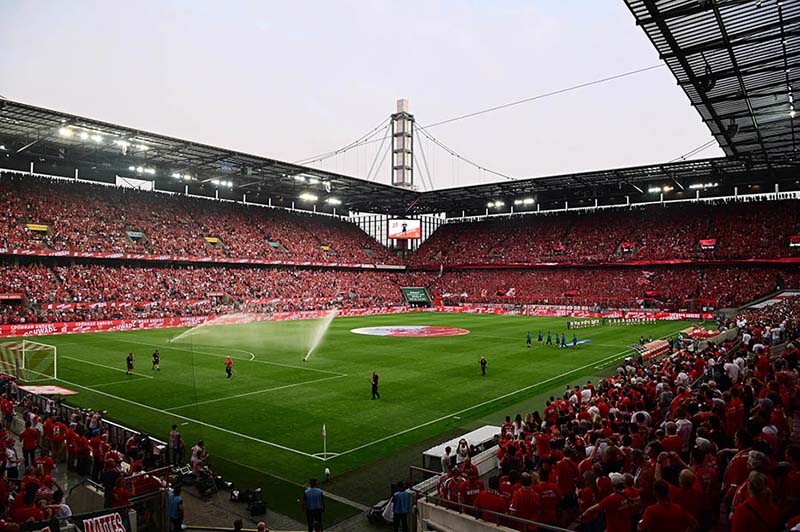
City snapshot
Renowned for its majestic cathedral and lively Karneval celebrations, Cologne offers a blend of historic charm and modern vibes.
Start with classics: Marvel at Kölner Dom, one of the largest Gothic cathedrals in Europe, then take a stroll to Altstadt Old Town with its narrow streets, colorful houses, and traditional pubs.
Beyond the tourist trail: After an emotional moment at the stadium, you are worth relaxing in Rheinpark.
Accommodation: While the prices are lower than in large cities, it may still be challenging to find a suitable option. Start planning your budget between €80 and €200 per night.
Transportation: KVB public transport offers trains, trams, and buses that provide an excellent transportation experience in Cologne. Look for Nextbike bike sharing for cheaper and more sustainable transportation.
Shopping: The shopping center in Cologne is Hohe Straße, lined with souvenir shops, clothing, electronics, vintage, and just everything you may think of.
Fun beyond football: To enjoy summer evenings, visit the rooftop Bar Botanik overlooking the Old Town, or you can walk to the Belgian Quarter to live its trendy vibe in one of the bars.
Cologne Stadium: Reconstructed for the 2006 World Cup, the Cologne Stadium will host five matches this year.
Capacity: 43.000
Dortmund (Matches: 6, Stadium: BVB Stadion)
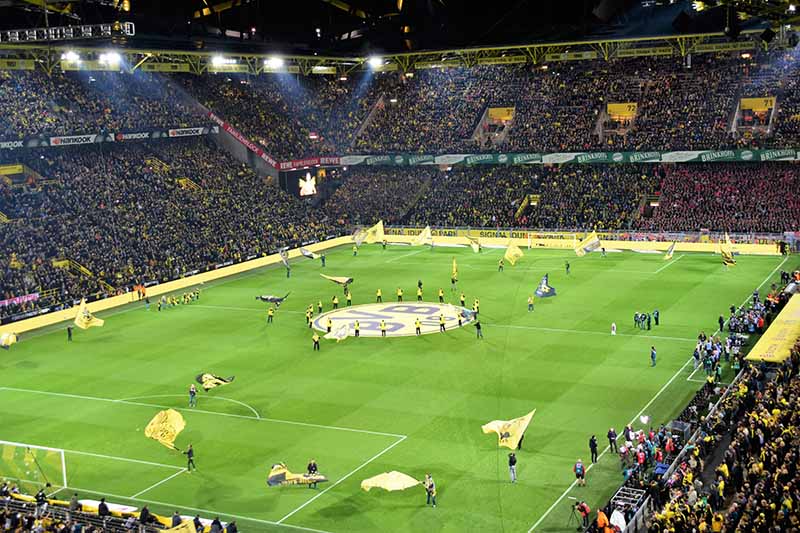
City snapshot
This industrial powerhouse with a population of 580,000 is a football fanatic’s paradise. Dortmund is home to the famous yellow wall of Borussia Dortmund, a passionate fan section.
Start with classics: Discover the city’s heart at the Alter Markt with the old fountain, the Old Civic Hall, and beautiful facades.
Beyond the tourist trail: Relax and enjoy nature in Westfalenpark, a vast urban park with neat gardens, lakes, a petting zoo, and a miniature railway.
Accommodation: Dortmund offers a range of hotels suitable for various budgets. Prices start at around €45 per night for budget options and can reach €180 per night for luxury stays.
Transportation: A well-connected public transport system with buses and trains offers easy access to the stadium and throughout the city.
Shopping: For high-end shopping, head to Westenhellweg, the main pedestrian zone with various department stores and branded shops. For local crafts and souvenirs, explore the stalls at weekend markets.
Fun beyond football: Choose to enjoy the cityscape from the 6th floor with a cocktail at the Baseology rooftop bar or enjoy a scenic cruise on the Dortmund-Ems Canal aboard a historic converted brewery ship.
BVB Stadion: This is one of Germany’s most renowned and one of the largest stadiums at EURO 2024.
Capacity: 62.000
Düsseldorf (Matches: 5, Stadium: Düsseldorf Arena)
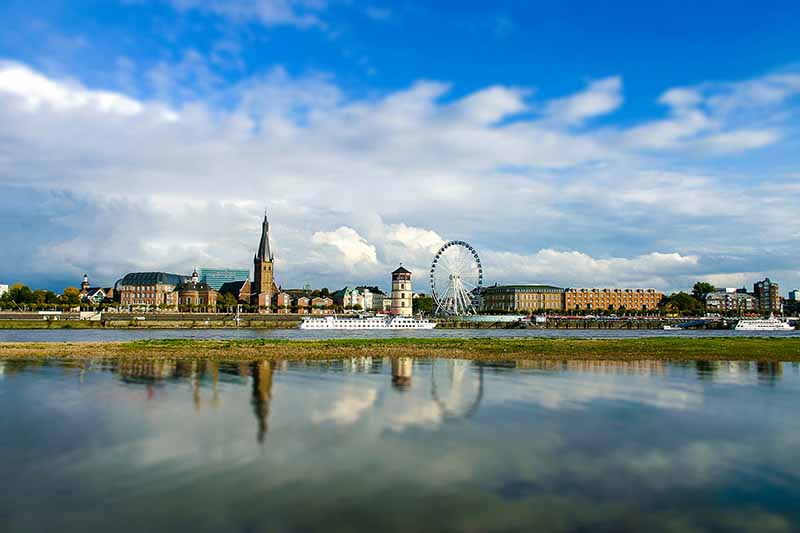
City snapshot
This fashion and business center, with a population of over 650,000 and 250 beer houses, offers a vibrant art scene and a relaxed atmosphere along the Rhine River.
Start with classics: To embrace the beauty of Düsseldorf, climb the Rheintrum tower of this historic castle or walk Rathaus with the market square.
Beyond the tourist trail: Spend mornings or evenings strolling along the Rhine at Burgplatz or visit the oldest Kaiserswerth neighborhood.
Accommodation: Hotel prices in Düsseldorf can vary depending on the season and proximity to the city center. The prices vary between €60 and €220 per night if you book well in advance, especially during EURO 2024.
Transportation: The favorite means of transportation is the bike available through bike-sharing services. You can also buy DüsseldorfCard and get tons of discounts at museums, public places, and absolutely free public transport.
Shopping: High-end shopping is available at Königsallee Street with luxury brands and designer boutiques. For a more local experience, explore the shops and boutiques in the Altstadt (Old Town) or visit the Carlsplatz Market for unique souvenirs.
Fun beyond football: Everything is quite straightforward here. Visit Altstadt (Old Town) to find the biggest number of bars (over 260). Get a pub crawl or choose one to spend the rest of the day.
Düsseldorf Arena: Compared to other venues, this arena is quite small, but it means you will have more emotions watching the game closer to the field.
Capacity: 47.000
Find direct flights to Dusseldorf
Frankfurt (Matches: 5, Stadium: Frankfurt Arena)
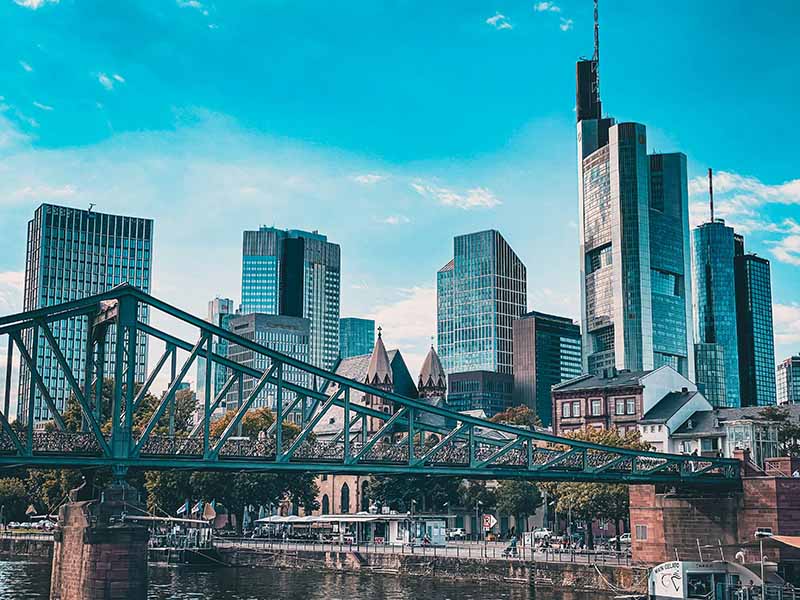
City snapshot
Germany’s financial hub with a population of over 750,000 offers a unique blend of skyscrapers, historical landmarks, and world-class museums.
Start with classics: Explore the Römerberg historic square, featuring the Römer (town hall) with its distinctive gabled facade. Also, take a stroll along the iconic Eiserner Steg pedestrian bridge offering stunning views of the Main River and the Frankfurt skyline.
Beyond the tourist trail: Take a sunset river cruise on the Main River to see different perspectives of Frankfurt in the evening lights.
Accommodation: High season and EURO 2024 will affect accommodation prices. The prices can vary significantly, with budget options starting around €90 per night and luxury stays exceeding €350 per night.
Transportation: Tickets start at €3.65 for single journeys. Consider purchasing a Frankfurt Card for discounted travel on public transport and free admission to many museums during your stay.
Shopping: The main shopping areas are the Zeil, a bustling pedestrian street lined with shops and malls, and the Goethestrasse, known for its designer boutiques.
Fun beyond football: To see everything in one place, head straight to Alt-Sachsenhausen’s historic district with numerous traditional pubs and bars.
Frankfurt Arena: This is the third biggest event taking place in this arena after the 1988 UEFA European Championship and the 2006 World Cup.
Capacity: 47.000
Leipzig (Matches: 4, Stadium: Red Bull Arena)
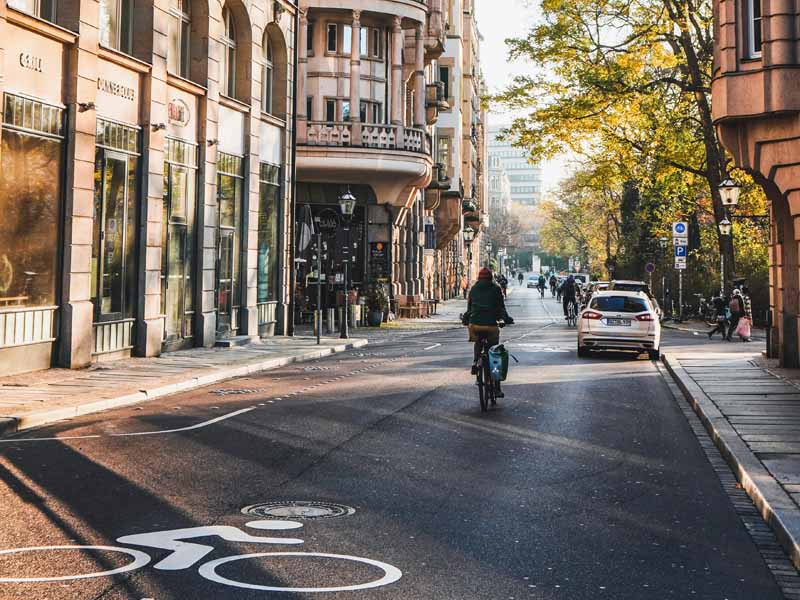
City Snapshot:
This vibrant city, with a population of roughly 600,000, has a rich musical heritage, historical sites, and a youthful atmosphere. Leipzig is a center for students and young professionals.
Start with classics: Take a tour of the musical heritage of Leipzig by visiting Thomaskirche (St. Thomas Church), where Johann Sebastian Bach once served as cantor, pay your respects at Bach’s grave, and climb the church tower for panoramic city views.
Cultural Time: Explore extensive ethnological collections in Grassi Museum, showcasing artifacts from Africa, Asia, Oceania, and the Americas.
Beyond the tourist trail: Visit the Plagwitz district, known for its industrial history, with many former factories and warehouses being repurposed into cultural spaces, art galleries, cafes, and studios.
Accommodation: Hotels cater to a range of budgets in Leipzig. Options range from €50/night for budget-friendly stays to luxury stays exceeding €200/night.
Transportation: Leipzig offers a well-connected public transport network of 13 tram lines and 61 bus lines. Residents and guests also choose carsharing and bike sharing.
Shopping: Find the shopping mall inside the central station or go to Petersstraße, one of the best shopping streets with popular brands and specialty shops.
Fun beyond football: Choose Oskar venue to have a restaurant, cocktail bar, and music hall in one place and enjoy every moment of your evening.
Red Bull Arena: Occupying the old Zentralstadion, this arena is a wonderful example of a classy stadium.
Capacity: 40.000
Stuttgart (Matches: 5, Stadium: Stuttgart Arena)
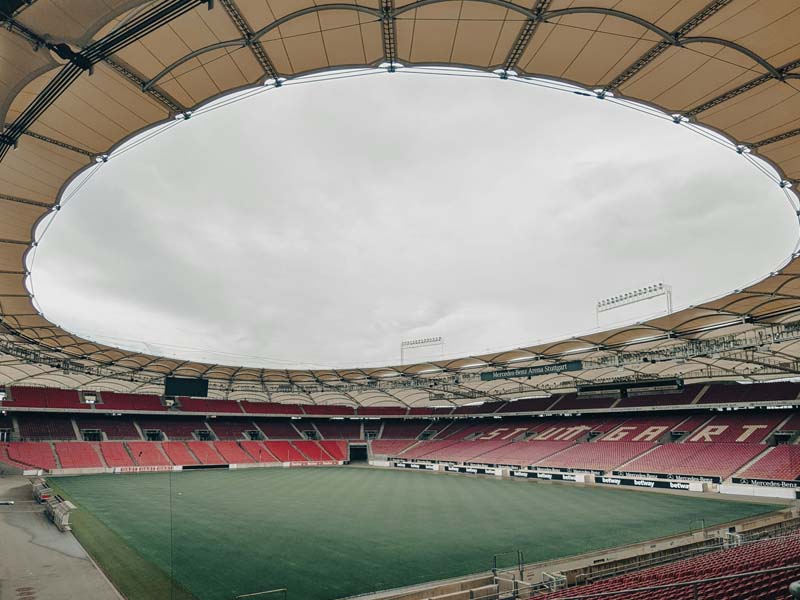
City snapshot
Nestled amidst vineyards, Stuttgart is a city with a population of over 600,000, known for two world-known automakers, Mercedes and Porsche, historical sites, and surrounding natural beauty.
Start with classics: Explore the city from Schlossplatz, with many historical buildings around the square, including the New Palace.
Beyond the tourist trail: Take an elevator ride to the top of this iconic Fernsehturm tower for breathtaking 360-degree views.
Accommodation: Hotel prices in Stuttgart for the summer months may be around €60 per night for budget options and can reach €200 per night for luxury stays.
Transportation: Stuttgart has a well-connected public transport system with U-Bahn and S-Bahn. You can buy a Stuttgart Citytour Card for unlimited travel on public transport and free admission to many museums and attractions during your stay.
Shopping: For high-end shopping, head to Königstraße, a pedestrian zone lined with designer boutiques and department stores. For local crafts and souvenirs, explore the stalls at weekend markets.
Fun beyond football: Spend your evening in one of the coolest bars in the city, Jigger & Spoon, or socialize with locals at Schönbuch Brauhaus with a glass of craft beer.
Stuttgart Arena: A modern venue has hosted games since 1974, and today the renovated arena is ready to host EURO 2024.
Capacity: 51.000
Hamburg (Matches: 3, Stadium: Volksparkstadion)
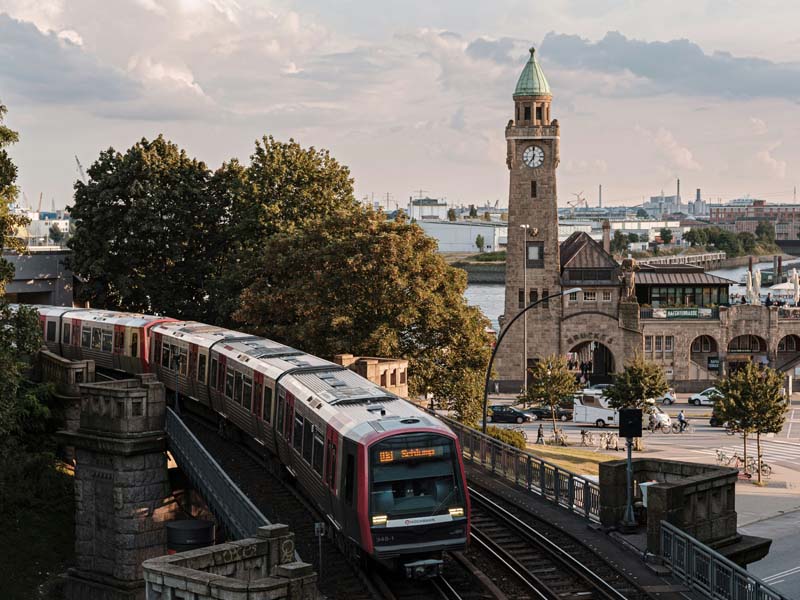
City snapshot
Germany’s second-largest city, Hamburg, is known for its vibrant port atmosphere and a population of 1.8 million. From mid-June to July, be captivated by its historic canals, maritime heritage, and lively nightlife scene. And don’t forget to taste the local favorite, Franzbrötchen for breakfast!
Start with classics: Visit Speicherstadt, the world’s largest warehouse district, offering a unique blend of history and modern architecture. Take a boat tour through the canals for stunning views.
Beyond the tourist trail: Spend some time in the Schanzenviertel neighborhood, known for its independent shops, street art scene, and vibrant bars and cafes. Sample a local “Fischbrötchen” (fish roll) for a quick and delicious bite.
Accommodation: Hamburg may surprise you with the versatility of accommodation options and the range of prices from €60 to over €280 for one night.
Transportation: To move around Hamburg, buy a Hamburg Card and use any of the transport means, from underground trains to light-rail networks, basses, and ferries, for free.
Shopping: For an exclusive experience, stroll along Alster Arcades, lined with cozy cafes and shops of jewelry and clothing.
Fun beyond football: If you want to hang out with friends after a game, choose Puzzle Bar on Versmannstraße or Cave Club & Lounge for a party.
Volksparkstadion Hamburg: The stadium has hosted multiple events, including the 1988 UEFA European Championship and the 1974 and 2006 World Cups.
Capacity: 49.000
Compare all flights to Hamburg
Gelsenkirchen (Matches: 2, Stadium: Arena AufSchalke)
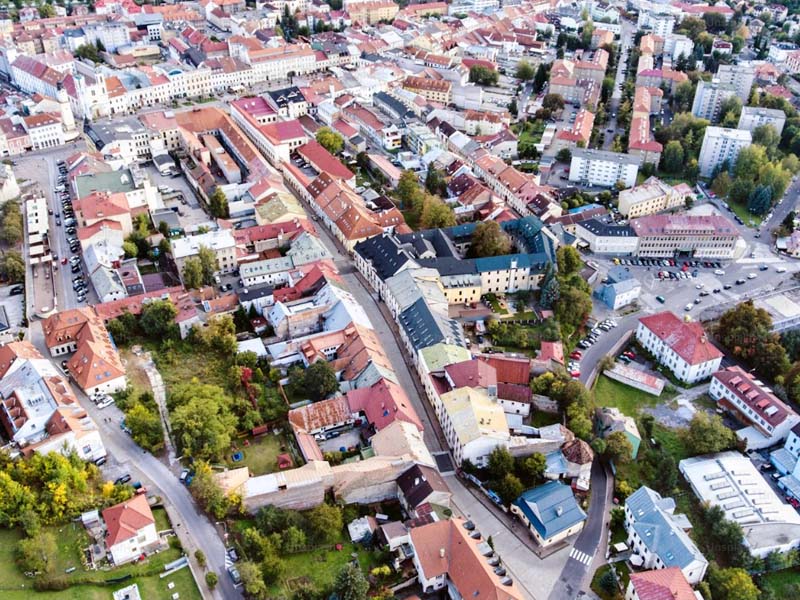
City snapshot
Gelsenkirchen, a city in western Germany with a population of 260,000, is known for its industrial heritage and deep-rooted football culture. The city will offer you a unique experience of an authentic German city.
Start with classics: Learn the history of the city in the Zollverein Coal Mine Industrial Complex, which showcases the city’s industrial past with restored mineshafts, coking plants, and a fascinating museum.
Beyond the tourist trail: Take a journey through different ecosystems at Zoom Erlebniswelt Gelsenkirchen, featuring animal enclosures designed to mimic their natural habitats.
Accommodation: Gelsenkirchen offers a range of hotels for various budgets. Prices can be more affordable compared to other host cities, with options starting at around €85 per night for budget stays and reaching €250 per night for luxury accommodations.
Transportation: Gelsenkirchen has a well-connected public transport system with light rail, trams, and buses, providing flexibility in the city and connecting it to nearby cities like Dortmund and Essen.
Shopping: For high-end shopping, explore the Europa Center, a shopping mall featuring various department stores and brand-name shops. For a more local experience, visit the weekly market on Neumarkt Square, offering fresh produce, local crafts, and a vibrant atmosphere.
Fun Beyond Football: For drinks and nice talks, visit the Daktari cocktail bar or Temple Bar for drinks and dances.
Arena AufSchalke: Home of seven-time German champions, the venue may become THE one with great goals at EURO 2024.
Capacity: 50.000
Follow our newsletter for more updates on EURO 2024 and other trending topics.



